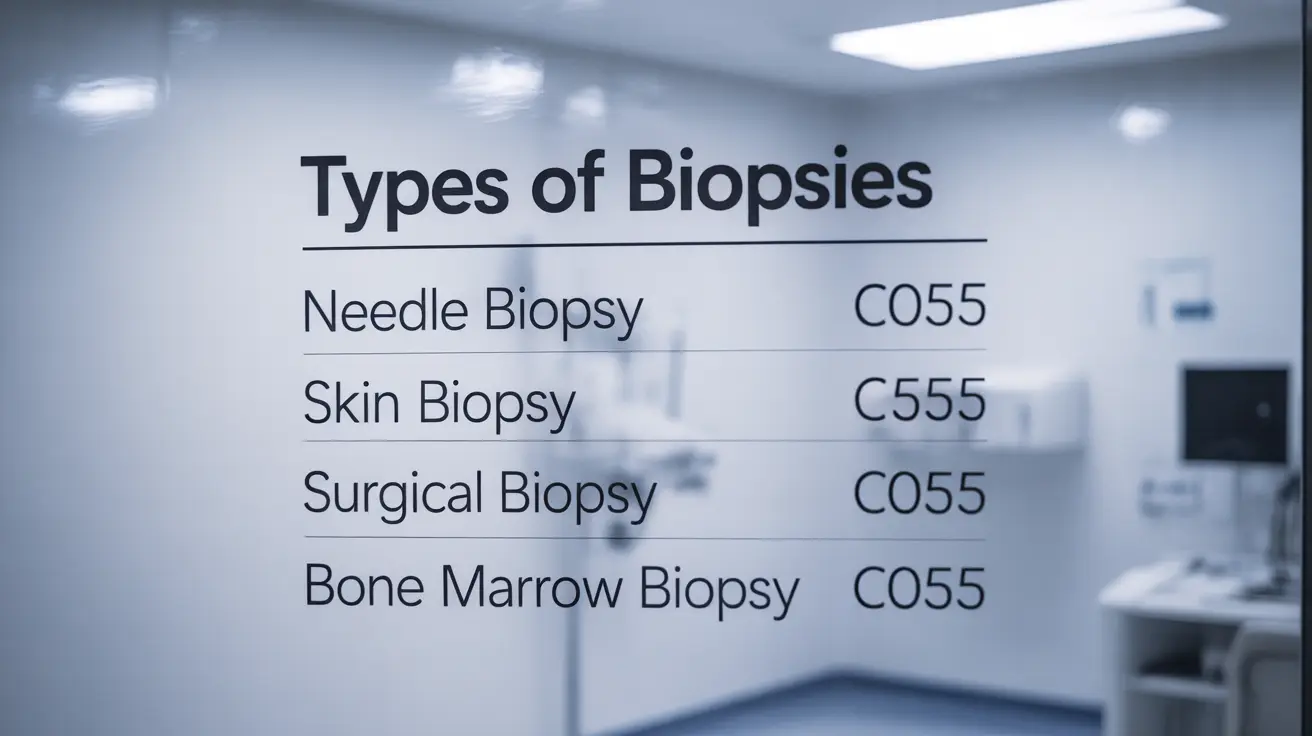Understanding the cost of a biopsy procedure is crucial for anyone needing this important diagnostic test, especially those with Medicare coverage. A biopsy involves removing tissue samples for examination, and the total cost can vary significantly depending on several factors, including the type of biopsy and where it's performed.
This comprehensive guide will break down biopsy costs, Medicare coverage options, and what you can expect to pay out of pocket. We'll also explore ways to reduce your expenses through various Medicare plans and supplements.
Types of Biopsies and Their Costs
Different biopsy procedures come with varying price tags. Here's what you might expect to pay before insurance:
- Needle biopsy: $500 - $1,500
- Skin biopsy: $200 - $1,000
- Surgical biopsy: $1,000 - $4,000
- Bone marrow biopsy: $2,000 - $3,000
These ranges represent base costs and may increase depending on facility fees, laboratory analysis, and other related services.
Medicare Coverage for Biopsies
Medicare typically covers medically necessary biopsies under different parts of its program:
Medicare Part A Coverage
If your biopsy is performed during a hospital stay, Medicare Part A covers the procedure as part of your inpatient services. You'll need to meet your Part A deductible before coverage begins.
Medicare Part B Coverage
For outpatient biopsies, Medicare Part B generally covers 80% of the Medicare-approved amount after you've met your annual deductible. This includes procedures performed in:
- Doctor's offices
- Outpatient clinics
- Ambulatory surgical centers
Understanding Out-of-Pocket Costs
Your personal expenses for a biopsy under Medicare typically include:
- Annual deductible for Part B
- 20% coinsurance of the Medicare-approved amount
- Any facility fees not covered by Medicare
- Costs for additional tests or follow-up care
Reducing Costs with Medicare Supplement Plans
Medicare Supplement Insurance (Medigap) can significantly reduce your out-of-pocket expenses for biopsies. These plans can cover:
- Part B coinsurance
- Hospital deductibles
- Excess charges
- Additional healthcare costs
Factors Affecting Total Biopsy Costs
Several elements influence the final cost of your biopsy procedure:
- Geographic location
- Type and complexity of the biopsy
- Facility where the procedure is performed
- Additional testing requirements
- Provider fees
- Anesthesia needs (if required)
Frequently Asked Questions
How much does a biopsy cost with Medicare coverage? With Medicare Part B, you'll typically pay 20% of the Medicare-approved amount after meeting your deductible. The total cost varies by procedure type, but Medicare generally covers 80% of the approved amount.
What types of biopsies does Medicare typically cover? Medicare covers all medically necessary biopsies, including needle biopsies, surgical biopsies, skin biopsies, and bone marrow biopsies, when ordered by a Medicare-approved physician.
How much will I have to pay out of pocket for a biopsy under Medicare Part B? Under Medicare Part B, you'll pay your annual deductible plus 20% of the Medicare-approved amount. For example, if a biopsy costs $1,000, you might pay about $200 plus your deductible.
Can a Medicare Supplement plan help reduce the cost of a biopsy? Yes, Medicare Supplement plans can significantly reduce your out-of-pocket costs by covering your Part B coinsurance and potentially other expenses like deductibles and excess charges.
What factors affect the total cost of a biopsy procedure? The total cost is influenced by the type of biopsy, location of the procedure, facility fees, provider charges, necessary additional tests, and whether anesthesia is required.




